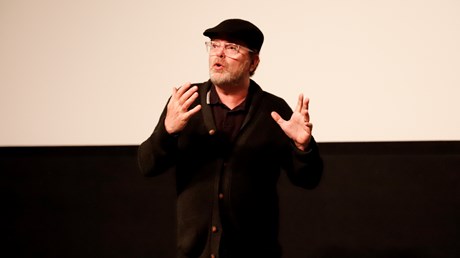“The Office” star offers a welcome critique of privatized faith. His other ideas are harder to swallow.

I promised myself only one The Office reference in a review of Soul Boom: Why We Need a Spiritual Revolution, written by Rainn Wilson, the actor who portrays Dwight Schrute on the show. So here goes: In season five , Dwight and his longtime girlfriend, Angela, the most religious person on the show, break up. Dwight is crushed and confides to a coworker, “She introduced me to so many things. Pasteurized milk, sheets, monotheism, presents on your birthday, preventative medicine.”
Where Dwight was a latecomer to the merits of monotheism, Rainn Wilson has made promoting it a major part of his life’s calling, bending his significant celebrity and resources to projects that promote human spirituality in media, entertainment, and social activism. Soul Boom is his latest effort and, despite its shortcomings, is one of the most compelling non-Christian apologetical works I have read.
Anticipating shared values
Wilson is a member of the Baha’i faith, a religion introduced in the 19th century by Baháʼu'lláh (1817–1892), who claimed to receive a new revelation that, roughly speaking, placed him in the genealogy of “Manifestations of God” stretching back to Abraham and including Krishna, Zoroaster, Buddha, Jesus Christ, and Muhammad. The religion now claims around six million followers globally.
The teachings of Baháʼu'lláh, as well as his son and grandson and the Universal House of Justice, the faith’s governing body since 1963, are quite ecumenical. For starters, they draw widely from world religions to form the basis of their teachings. In addition—and more provocatively, at least from this Christian’s perspective—the faith rejects the ...
from Christianity Today Magazine
Umn ministry


.gif)

.gif)
.gif)
